Episode 41: Board Meetings | Can Everyone Climb V10?
This episode is another example of the extras that we'll be giving to our patrons!
Nate and I noticed a trending topic online that was causing waves. Jon Glassberg recently wrote a blog for La Sportiva entitled "How To Climb V15". He begins the article with this statement:
My hypothesis: Any climber with an athletic disposition, dedication, time, appropriate training and proper diet can climb V10. Climbing double digits is an attainable goal for any serious climber. You just have to want it badly enough and put in the training hours to get there.
We agree. Listen to find out why...
Like what you hear? Subscribe to The Power Company Podcast on ITunes, Google Play, or Stitcher Radio, and leave a rating and review!
FULL EPISODE TRANSCRIPT:
Kris Hampton 00:32
What's up everybody? I am your host, Kris Hampton.
Nate Drolet 00:35
And this is Nathan drolet.
Kris Hampton 00:36
And you're listening to the power company podcast brought to you by power company climbing.com. We are sitting here in extra extra snowy lander, Wyoming. And we thought we wanted to record our voices because why not? It's snowy here. We're not going outside. We're not like that. We don't have skis. We go rock climbing, and no one's doing that right at this moment.
Nate Drolet 01:01
And I'm from Texas,
Kris Hampton 01:03
Texas. Yeah, so he woke up this morning and was like, I think I'm going to leave. But it's gonna melt. We're gonna go rock climbing again. And anyway, this episode is, you know, we've been talking a lot about patron only episodes and what we're going to do for the patrons of the podcast. And this is one of the episodes that Nate and I've been talking about doing. What we're doing is, you know, when a hot topic pops up online, and people are, are yelling about it over at Reddit, or wherever we end up having discussions about it, so why not record those discussions and put it out for our patrons. So this is indicative of what you could get. If you're a patron $1 and up per month, we'll get you this kind of episode plus a bunch of other extras. And you can check that out. over at patreon.com/powercompanypodcast. And today's topic is just recently, a friend of ours Jon Glassberg, posted a blog on the La Sportiva site. And his blog is titled How to climb v15. Which doesn't necessarily, you know, not everybody is interested in climbing v15. I'm never going to climb v15. So that title alone doesn't make me necessarily want to read it except for that I'm a coach. So I'm like, hey, I'd like to know how to climb v15. You know, I can coach people. And Jon starts it with something pretty interesting. He says, My hypothesis: Any climber with an athletic disposition, dedication, time, appropriate training, and proper diet can climb v15, or v10. Sorry, they can't all climb v15. But any climber with all of those parameters can climb v10. Climbing double digits is an attainable goal for any serious climber. You just have to want it badly enough and put in the training hours to get there. And I think that's a pretty bold statement to make. What are your thoughts on it?
Nate Drolet 03:13
I agree with it.
Kris Hampton 03:15
You agree with the statement?
Nate Drolet 03:16
I agree with the statement? Yeah. And I'd even go further to say that not only v10, but also maybe even 5.14 as well.
Kris Hampton 03:24
So do you think 5.14 is a harder goal to reach than v10?
Nate Drolet 03:27
It depends. I personally think 5.14 is harder than v10. But some people out there might disagree with me. I mean, they're allowed to be wrong.
Kris Hampton 03:38
Now, I think I agree totally, and for a bunch of reasons. But you know, first let's look at the the v10 idea that, that Jon puts forth. You know, he puts a lot of parameters here any climber with an athletic disposition, dedication, time, appropriate training and proper diet. And I think the big one, there is the time. Because, you know, that that rolls out a lot of people, you know, if you have a bunch of kids and a job, or even one kid and a job, or even just a job that takes up a ton of your time and you're not willing to give that up to make time to try and climb v10 then it's probably never gonna happen. But there is that option, you can do it. You can ignore your children. You can ignore your job, you can be poor and live in a van. effect, which you do. Yeah. And and then you can have a much better shot at climbing. So I do agree, I agree with his hypothesis that if given all those things, you can climb v10. Is that a realistic goal for everyone? Do you think?
Nate Drolet 05:00
I mean, it depends on what you're looking to get out of climbing.
Kris Hampton 05:04
Mm hmm.
Nate Drolet 05:04
I mean, you know, it also, you can have none of those parameters and still climb v10.It's just gonna be a lot harder.
Kris Hampton 05:12
Yeah, yeah.
Nate Drolet 05:13
But yeah, you know, it just really depends on what you're looking to get out of it. But I think, yeah, I think it's a good goal. It's funny, I have a buddy named Ettiene, French climber, who was giving me a hard time. He was like, man, Americans have it so easy, you know, for bouldering we have to make it all the way to 8a, which is v11. Like y'all get to stop at v10. You know, and with routes, it's like, 8C is a big deal. And y'all get to stop at a 8B plus, which is 14a.
Kris Hampton 05:45
Yeah, I mean, it's true. And I think those numbers are a mental block. No, I think when you have that big stage, like, this is where the big number is. It's a little harder to get to. So have we done that with v10? Is that a mental block for a lot of people? Do you think?
Nate Drolet 06:05
I think for some people? Yeah. I think it's going away. Definitely. I mean, there's just so many people who climb hard now that I think those grades aren't as scary anymore. Like a lot of people climb v10 within their first few years of climbing.
Kris Hampton 06:20
Yeah, and there's enough nine year olds climbing between now that, you know, oh, yeah, seems pretty easy.
Nate Drolet 06:25
I mean, though, actually, to go on this. kind of go on this subject. One of the big things that struck me whenever we were traveling, and doing our clinics, man, we would work with like some of those, like female girls who are, I don't know, like 910 11. Yeah, if they were anywhere else in the country, like, if I could just take them be like, Okay, I'm gonna run you around Hueco for three days. I'm gonna put you on like these handful of climbs, they would easily climb v10, v11. It's just simply they haven't had access to it like, yep, I would honestly say there's, I mean, there's probably, I don't know, like, maybe hundreds of youth kids who are fully capable of doing that. It's just, it just people in general, like me, and I go back to Houston every time and countless people or animals, but they just, you know, they live closer to Horsepen's than they do to Hueco. So right, right, they don't go rock climbing very much.
Kris Hampton 07:19
Yeah. And I think that's something that john sort of misses in here. He doesn't mention, he mentioned his dedication and time. And I guess that, you know, that sort of plays into it, but I think you just hit on it with having access to it is really important. You know, there are a lot of people who, whose lives, keep them in certain areas of the country where there aren't any vitodens nearby, you know, I was probably capable of climbing beaten for quite a while before I did. The big hurdle for me was access. I had to make the time and I had to dedicate myself to driving six hours to try the v10. You know, that I really wanted to do. And, and that's tough when you work a full time job and you have a kid and you have a you know, a rest of your life other than just seeking out the next hard boulder.
Nate Drolet 08:19
Yeah. And I mean, you know, if you're traveling that far, like, it's not really that fun to just sit under one boulder. If you could, right, I'd be like, Oh, I'm gonna go do 10 new v8s like, yeah, you know, if I go out that, to me sounds like a lot more fun to do more volume, climb a bunch of good boulders, and I'm probably going to learn and get could become a lot better from that. And sitting under a single project.
Kris Hampton 08:41
Yep. Yeah, I mean, I agree totally. And that's the way I approached bouldering for a long time, was doing a whole bunch of volume trying to get in as much as I can on these like, two or three, three day weekends, I get to go boulder during the winter, you know, so six or seven or eight days bouldering in a year, may not be enough for a lot of people to do v10. And that's all som people get bouldering. So, you know, I think it's I think it's tough. I again, I agree with this hypothesis, but you have to throw in a whole lot of what ifs. And you'd have to make a whole lot of concessions for people to agree, I think. Why do you think 5.14 is harder?
Nate Drolet 09:34
Because three moves is really easy to do. Honestly, I think a lot of it has to do with my background as a climber. Like I've always just climbed around strong boulders. So yeah, I mean, guys have climbed around, just that's what they did, where I haven't really climbed around that many great sport climbers and there aren't that many. There's so many more v10s than there are 5.14 in America. Sure, I mean, just, you know, the word exponential gets thrown around, absurdly, especially in like climbing media. But yeah, it actually probably is an exponential amount. Sure, right. It's, it's absurd. So yeah, just simply access and not being around enough, like good sport climbers that makes it really hard.
Kris Hampton 10:21
Yep. Do you think the mental toll is tougher with projecting a route that's at your limit, or with projecting a boulder that's at your limit? I can see both sides of the coin here. So I'm curious what you think.
Nate Drolet 10:36
I think routes like I've, I've never in my life been nervous about boulders, like, and this is, it may just be because I have more bouldering experience. But man, like, I get downright nervous when I'm tying in for redpoint sure, fire, I mean, boulders, it's, you know, you can even if you blow the last move, it doesn't matter.
Kris Hampton 10:56
Yeah. But I think I bet you've encountered this, I bet you have clients that just can't wrap their heads around trying a problem, if they can't do all the moves on day one, or day two, you know, if you spend more than a couple of days on a problem, and you still haven't done all the moves, it's really easy to just say, That's way out of my league, I'm moving on. You know, and I think if you don't have access to bouldering, you know, right outside your door, and you don't get to do it a lot I think that's a trap people fall into is, if I haven't done all the moves, it's not even worth trying. You know, john mentions in his blog that it took him, like six sections, six sessions or something, to do all of the moves of his v15. Project, the Big Island. And that's how it was for me for my second beat, and maybe even my first I don't think I'd done all the moves and a bunch of sessions. My third v10, definitely took me five or six sessions before I did all of the moves. And it was frustrating, you know, the first time I'd really had to work that hard for individual moves, that maybe over two or three sessions didn't even feel possible. And I just had to keep believing and keep believing. And I think that's a tough thing to do. Whereas with a lot of five fourteens, you're going to be able to do all of the moves fairly quickly. So I think it's easier for people to believe there. But the time commitment for a 5.14 is probably considerably harder, especially for a weekend warrior.
Nate Drolet 12:38
Yeah. And you have to have a belayer. Yep. That's a big, that's a really tough one. Where versus boulders, you can go out alone all the time. So you can if you are really time crunched, like bouldering is a much easier way. Also, I mean, training endurance, just it takes time. Yeah, like there's no, you just have to log hours at some point. We're bouldering. And you can get a lot done in a really short amount of time.
Kris Hampton 13:00
Yeah, I definitely. And, you know, I can't say that one versus the other as a direct comparison. But I definitely trained harder to climb 5.14, than I did to climb the 10. Of course, I had already trained up to being able to climb 5.14, before I started trying v10. So, you know, there's definitely some I can't compare the two directly, but but the push to 5.14, was excruciating for me mentally, because of falling off of the last move on what would be my first 5.14 and having to wait another season to try it. And the fact that you drive down there, and it's only two and a half hours, so it's a lot closer, but I'd get a couple tries a weekend. You know, that's it when you're in redpoint mode. That's all you get a couple of tries, maybe three if you're fit. With a boulder, you can try it 20 times in a day.
Nate Drolet 14:09
Oh, yeah, you can try it 20 times in the morning session. Yeah, like rest for the middle of the day and go try it in the afternoon again. Right.
Kris Hampton 14:15
So it's not nearly the the time commitment, I think for most people. So I see both sides of the coin. I mean, I'm in agreement with you. I think 5.14 is the more difficult goal. I think v10 is much more easily attainable. Especially if you have bouldering near you. Hmm, you know, I think I think that's a big thing that Jon misses is that he doesn't mention access. Yeah.
Nate Drolet 14:45
Are there any other things you would add Or if there's anything you'd like to elaborate on,
Kris Hampton 14:58
Let's see what he mentioned. Again, here, athletic disposition, dedication, time, appropriate training and proper diet, I would like to talk a little bit about appropriate training. I think that's a, that's a pretty tough subject to nail down. And, you know, I don't think that if v10 is nearing your physical limits, that appropriate training is a very easy thing to come by, I think it's gonna take time to figure out, I think it's gonna, you can't, you can't just go to our site and buy one of our ebooks, if v10 is near your physical limit you, you're gonna have to hire somebody, most likely, it's gonna be tough to train yourself in that situation. So it's also going to take money, you know, a good coach and a good training plan are going to cost money. So can you dedicate the time, which takes time away from work most likely, and still afford the appropriate training? I don't know. What are your thoughts?
Nate Drolet 16:14
You know, I don't know. I guess I have a bit of a beef with the whole genetic limit thing. I mean, obviously, it's a thing.
Kris Hampton 16:20
Oh, yeah. I don't mean genetic limit at all. I just mean, you're, you know, if you're 50 years old, v10, If you haven't climbed it is getting pretty close to as hard as you're going to climb? Most likely.
Nate Drolet 16:34
That's fair. Yeah, that's Yeah, I'd say when age, age definitely is a different factor. You know, I think a lot of it has to do with. So I've got a couple different things. Main one is playing the long game, like a v10 a year goal. And you're like, Hey, I don't care how long this takes. Let's say you're in your 30s. Even if you're willing to say, Okay, I climb v7 now and I want to climb v10. Eight years from now, you could really like take it slow, like build a massive base. And you could damn near guarantee that you're going to get there.
Kris Hampton 17:13
Yeah, yeah, I agree.
Nate Drolet 17:14
Like, you train reasonably. And you say, okay, like, this year, I'm going to climb, every v seven, I can next year, I'm going to try and break into v8. And I'm going to climb every hard v7. And the next year, I'm going to climb all the v8, and maybe try and break into v9 you can really slowly work through this. If you have access to climbing obviously, you could really take your time just train intelligently, like, patiently don't get injured. And like you would end up getting there. Like the biggest problem that most people end up having is no one wants to improve like a half letter grade right here at sport climbing. Yep. Like that's really boring. I want to climb 9a tomorrow, huh?
Kris Hampton 17:51
Of course you do. I want you to but I know better. Yeah, I agree. And I think that, you know, I think that sort of ties into appropriate training, I think I think training, a component of training is the planning and the tactics and, and all of that that goes into building up to, you know, the title fight, so to speak, you know, a good boxing trainer, sets up His fighters with, with fights that are going to build up to him having this title fight, you know, and I think that's a good tactical way to approach a hard boulder as well spend all these years, building up to it in a systematic way. But like you said, Nobody wants to do that. Yeah, you know, and that's part of the appropriate training is convincing yourself or a coach convincing you to play this long game that you're talking about.
Nate Drolet 18:53
Yeah. And, you know, the thing too, is when you're playing that long game, you have a lot more time to actually practice and learn how to move better, you're gonna climb on a lot different, a lot of different styles. I mean, that's just it like, man, so many people are strong enough to climb v10. Like, it's crazy to me how strong people are.
Kris Hampton 19:10
Yeah, all the time. Yep, I definitely see more stronger climbers than I see better climbers,
Nate Drolet 19:19
if that makes any sense. No, absolutely. And I'm, you know, I think it definitely comes from like, I have a bias of, I feel like I could always move better. Like, I think I could always become a better climber. Yep. But man, I feel like most people I see punch way below their weight as far as like how strong they are versus how well they move. And you know, how hard they end up climbing?
Kris Hampton 19:41
Yeah, I agree. And I think, you know, again, that I think it plays into that appropriate training. You know, the definitely the. The popular way to train right now is to get stronger, stronger, stronger, stronger, stronger. And like you said, there's a lot of people out there who are strong enough to climb way harder than they are. They should be canvasing beaten? And a lot of them do, you know? But I don't. I don't think that's necessarily appropriate training for most people. You know, Jon Glassberg, obviously is a good climber. He climbs at the v13. level and has for eight years, I think he said, on the blog. Yeah. So building that enormous base, over eight years of climbing around v13. set you up really nicely to climb v15. Particularly if you find one that suits you. And he mentions that in the blog as well, that, you know, it may not be that he's going, he's not going to go climb every v15. That's not his goal. His goal is to reach v15. So if your goal is to reach v10, you should be looking for the one that suits you when you get there. Build up as big a base as you can at v7, v8, climb everything you can, but go find something that suits you. For those first hard hard boulders, pillowy, soft, pillowy soft, yeah, the softest thing you can find.
Nate Drolet 21:18
So, how about this, let's say, someone's like, Hey, Kris, I've got all the time in the world. Like I have, you know, I live out of my car, or, you know, I'm, I live with 15 other rock climbers. So my rents cheap. I have a garbage job that I hate. But it gives me all the time in the world. I'm still not climbing v10. Like, what? Like, and this is actually a fairly common scenario, like you see a lot of people who get in this. What do you think are some common pitfalls for people in those situations?
Kris Hampton 21:51
Um, I think I think one big pitfall that just jumps straight to into my mind is that everybody wants strength and power to Boulder harder. And that's fair, you need those things. They're, you know, they're the building blocks of bouldering harder. But whenever most climbers talk about, I need to get power, they go straight to the fucking campus board. And I don't think that's the best way to gain or express power. I think learning to climb more powerfully, if you need more power is probably the best place to start. And sure, the campus board is going to show gains for some people. But if you don't have power to begin with, you can't express it on a campus board. You're just not going to be able to use it. You know, so I think you have to learn to climb better, like we were just saying. I think that's the biggest pitfall that I see right off the bat. What about you? What do you have in mind?
Nate Drolet 23:02
Man, overtraining is most common one. Yeah, yeah. I know so many people who just they have all the time in the world. And so they're like, Okay, I'm gonna go to the gym six days a week. Yep. I'm just gonna get crushed. And yeah, they just like, so many of these people, I just want to shake them and tell them to get a hobby.
Kris Hampton 23:22
Pick, I got a few. Yeah, a few extras.
Nate Drolet 23:26
But seriously, like, there are so many people who the best thing they could do for their climbing is to pick up a hobby, anything like, I don't know, reading, whatever. But they just spend so much time doing that to the point where they're destroyed. Yeah. And they don't really get better. Like, that's fairly common. Like, yeah, I
Kris Hampton 23:46
mean, john mentions it. In his blog, he said that he had no idea how important rest was, and until May, she was coaching him in this forced him to rest a little bit, you know, and then he started to see the gains over a longer term. So, you know, he got to v13 without resting a whole lot. But that's him. Some of us are going to get to v6 without resting a whole lot. And then we're going to stall out because we're overtrained. You know, he stalled out for eight years. You know, and you know, it's v13. So it's, it seems like you're at the super high level. But if you've been at the same level for eight years, and you can still climb harder, something went wrong there. You know, so good for john for stepping up, realizing some things needed changed, getting a coach, talking to Neely about his diet, and making these changes to climb something harder. But I think you have to realize when you're overtrained and stuck. Hmm. So yeah, I think that's a big one. Do you have other things in mind when you were developing this impossible to answer question? Oh, yeah.
Nate Drolet 24:59
Yeah, I can sprung that on you. I'd say a lot of people jump into projecting too early.
Kris Hampton 25:05
Yep. That was the second thing on my mind, actually. And while I was saying this, the first thing that jumped into my head that was popping into my head, and I pushed it out. But yeah, I agree. Yeah, if you want to climb v10, and you're still climbing v7, a lot of people just go, Oh, I'm just gonna go throw myself at the 10. You know, and sometimes that works. Yeah. But you're stuck again.
Nate Drolet 25:28
Yeah, you rarely end up a better climber. Right? Like, oh, you're now v7 climber who's climbed a v10. Yeah. Yeah. And I mean, it goes back to playing the long game, like, you know, get a lot of mileage under your belt, like build that confidence, build up a base, be able to climb everything of every style. And man, when you do step up to the next level, you'll be able to crush it.
Kris Hampton 25:49
Yep, I agree. You have any specific tactics that, you know, say there's a V eight climber out there who wants to climb v10. Now that he's read Jon Glassberg's blog, and he's not really sure where to go next, you know, other than going to powercompanyclimbing.com and sending us a message. What should you do?
Nate Drolet 26:16
Go to Bishop get on acid wash. You're welcome. I'll send you a link to my paypal account for any money. But seriously, I think Charlie Barrett's rewriting the bishop guidebook, so Oh, yeah, yeah. Anyone out there, get to it quick. Yeah,
Kris Hampton 26:34
get to get to these things. And use an old guidebook that has old grade. So yeah. or soft grades. Even if you know, it doesn't have to be old. It could be a new guide book. Make sure you choose the softest guide book out there. When you want to climb hard.
Nate Drolet 26:49
Yeah, I don't buy anything with anything other than black and white photos. My guide books.
Kris Hampton 26:56
Brilliant.
Nate Drolet 26:58
But for so v8 climber he wants to go do v10. What's, what's this person's life situation like?
Kris Hampton 27:06
Normal, you know, works a job has as bouldering relatively nearby. But works at 40 hour week job and gets out on the weekends and climbs hard in the gym when he's in there. So, you know, he or she wants to wants to climb harder outside? Yeah, I'd
Nate Drolet 27:26
say the biggest thing. First things that jumped in mind are one, like what I was saying earlier is build up the base man, you're kind of climbing v eight and you know, climb all the weights. Or if you can't do that, like go back and say okay, I'm going to claim every v7 all the really hard, heinous ones. Absolutely. Everyone.
Kris Hampton 27:45
Yeah, don't skip over the heinous ones because a heinous v seven is still only a v8, you know, yet it's at its max. Generally speaking, for sure. So skipping those ones that just don't suit you are fair, really hard for the grade or whatever. Like that's a big mistake.
Nate Drolet 28:04
Or if you do skip them, just keep that in mind. So let's say when you're going to try and build a base up of v9s, then go back and say, Okay, what are those really fucked up v7s? Like the ones that are absurd? Like, yeah, work those in but take them just as seriously as anything else. Yep. Next thing I'd say is, man, just climb with stronger people. Like that goes so far. Yeah, there really does, like, you know, put your ego in backseat, just go try hard boulders with really strong people.
Kris Hampton 28:30
Yeah. And that goes, that goes a long way on several fronts. You know, not only is it easier for you to believe that these hard boulders are possible when you see your friends doing them as part of their circuits. But you also get to see these really good rock climbers and pay attention to what they're doing, both in the gym and how they train, or how they approach a hard boulder that they're working on. And how they work through those points that seem to throw a lot of people off, like a move you can't do for several sessions or a link you just can't make for several sessions or whatever it might be. You get to see these good climbers work through that. And I think that's a big help. Oh, for sure.
Nate Drolet 29:19
I think having a good tactical approach and learning that from people is huge. I mean, it's like what you're talking about earlier, like not knowing, you know, it's like, Okay, I'm gonna go try this boulder and you walk away having not done to the moves, like, well, should I even go back to it, but when you find with someone who's stronger, and you know, they're still very optimistic, they're like, Oh, well, I you know, I touched this hold and like, I stalled that one briefly. So I know I can come back and do it because they have that much experience behind them, right.
Kris Hampton 29:47
Yeah, you see, they're stoked to come back to it. Like they leave excited, because they just did four of the moves, instead of leaving, rejected or dejected because they didn't do too. The most, you know, so I think that's an important point to, to take.
Nate Drolet 30:05
Alright, so let's say you have a female she climbs V8. Let's say she lives in Salt Lake and she wants to climb V10. Okay, five foot four. Okay, this isn't any one specific. I'm just trying to make it as she lives in Salt Lake. Yeah, so there's good climbing around. Yep. Both in the cottonwoods. And down in Joes and wherever else.
Kris Hampton 30:27
Yep. I would. A, you know, I would spend some time figuring out what her biggest weaknesses are. And attacking those during the training season. You know, it's not great climbing outdoors, year round around Salt Lake. So I would say, spend these months in the gym. Really Work on your weaknesses, continue to work on your strengths as well. But shore up those weaknesses, then we go out in the outdoor season. And I would probably want her to get out a little early, just to start building up her outdoor fitness and getting her outdoor legs under her. And then pick a couple of nines that are somewhat similar to her eventual v10 goals. You know, if she's a cramp Master, there's obvious v10s. And Joe's Valley. You know, if she's a slab Master, I'm sure there are v10s. And the cottonwoods that she's gonna have a much easier time with than I ever could imagine having. So I would start picking, picking off things that are similar to those goals and build up momentum throughout the season. You know, that's the way I would start for sure.
Nate Drolet 31:55
So work on the weaknesses through the training. And then once season comes along, just ramp up and focus on strengths.
Kris Hampton 32:02
Yeah, and I think, you know, I think climbing is so varied, and every boulder problem you get on is going to nearly every is going to exploit some little bit of your weaknesses. You know, oftentimes we find ways around them. But if you don't have those weaknesses, then you don't have to spend that time finding a way around it. You know, so I think it's important to even if you're going to project to your strengths, it's still important to shore up those weaknesses.
Nate Drolet 32:37
Do you have anything else? Anything else on 5.14?
Kris Hampton 32:39
Or? No, I don't think so. I think I think we've done enough agreeing with Jon here. He's just feeling smug right now that we're sitting here agreeing with him.
Nate Drolet 32:48
It's okay. You told me at an eight year plateau.
Kris Hampton 32:52
Sorry about that, Jon. But you know, facts are facts.
Nate Drolet 32:56
A day doesn't lie. That's true.
Kris Hampton 32:57
That's true. Yeah, so I think, um, I think I'm good if you're good. Yeah. All right. You know, like, like we said, this is just something that we are going to record and give to our patrons from time to time whenever these hot topics pop up. And we like having these conversations. So you know, if you guys want to listen in, you can do it for as little as $1 a month at our Patreon site, which is patreon.com slash power company podcast. And that doesn't mean that if you don't become a patron, you are going to stop getting episodes, we're going to continue to do exactly what we've been doing, putting out just as much amazing content as we have. So there's not going to be any losses. I just happen to like talking into a microphone. So we're gonna do that more often. And give it to those folks who are helping support the podcast. And you can find us at the power company climbing.com you can check out all of our ebooks all of our training plans. You can go buy a T shirt, you can help support in all sorts of ways. You can share it with your friends on the social medias. You can find us on the Facebook's the Pinterest the Instagrams, but you will not find us on Twitter. Because we don't tweet. We scream like eagles.

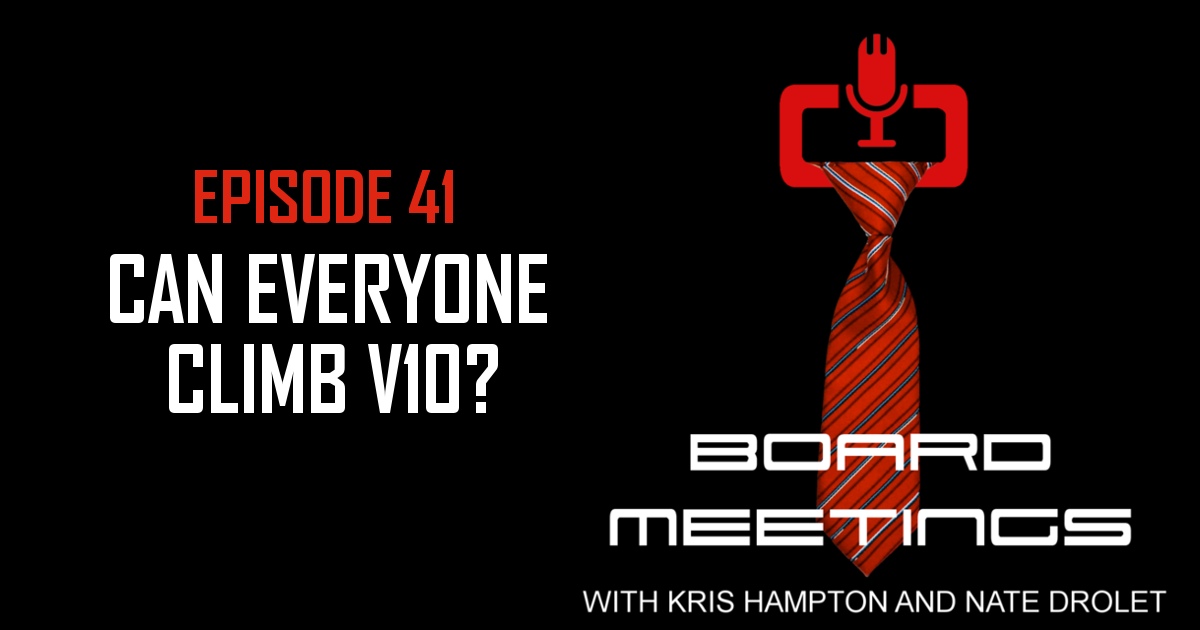


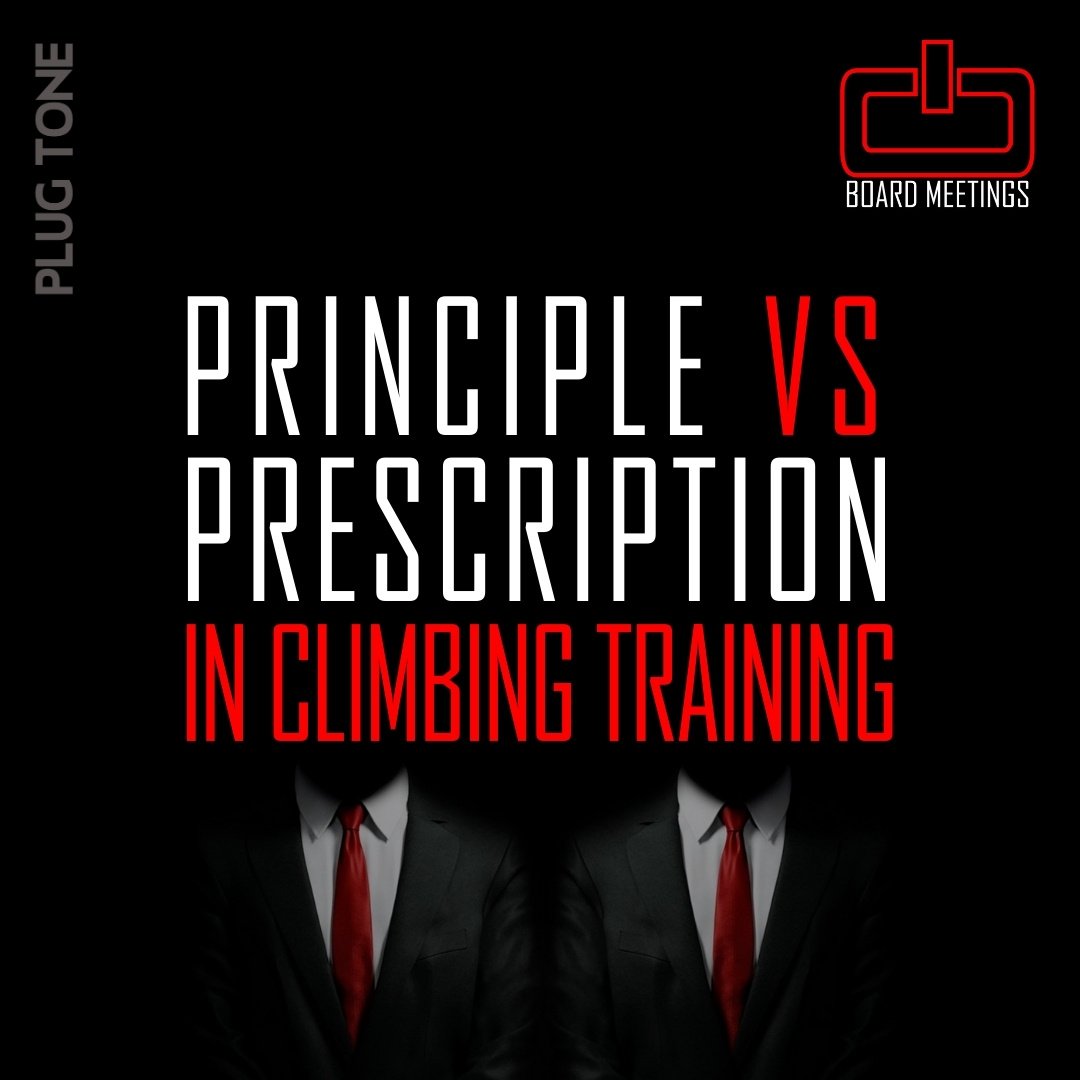
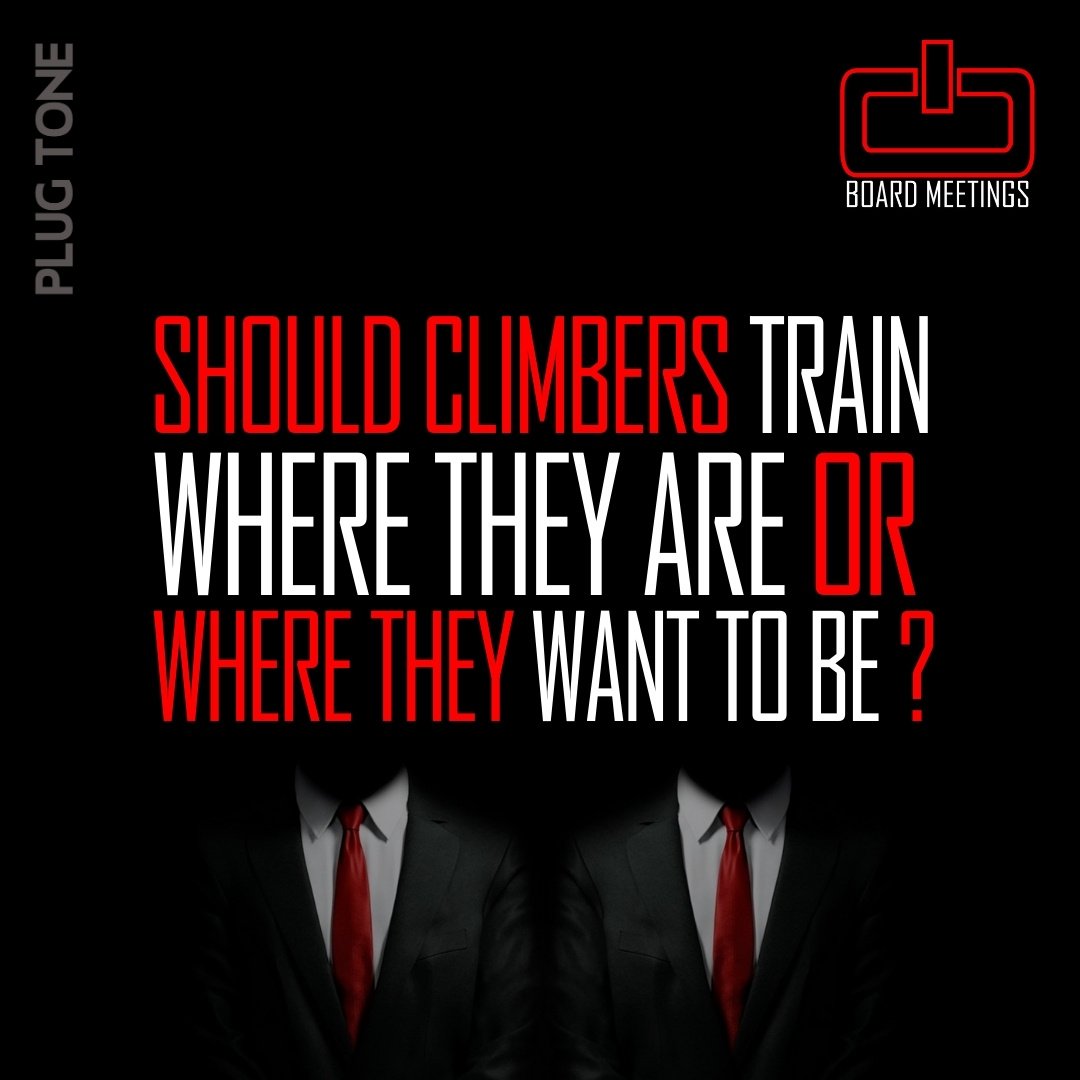


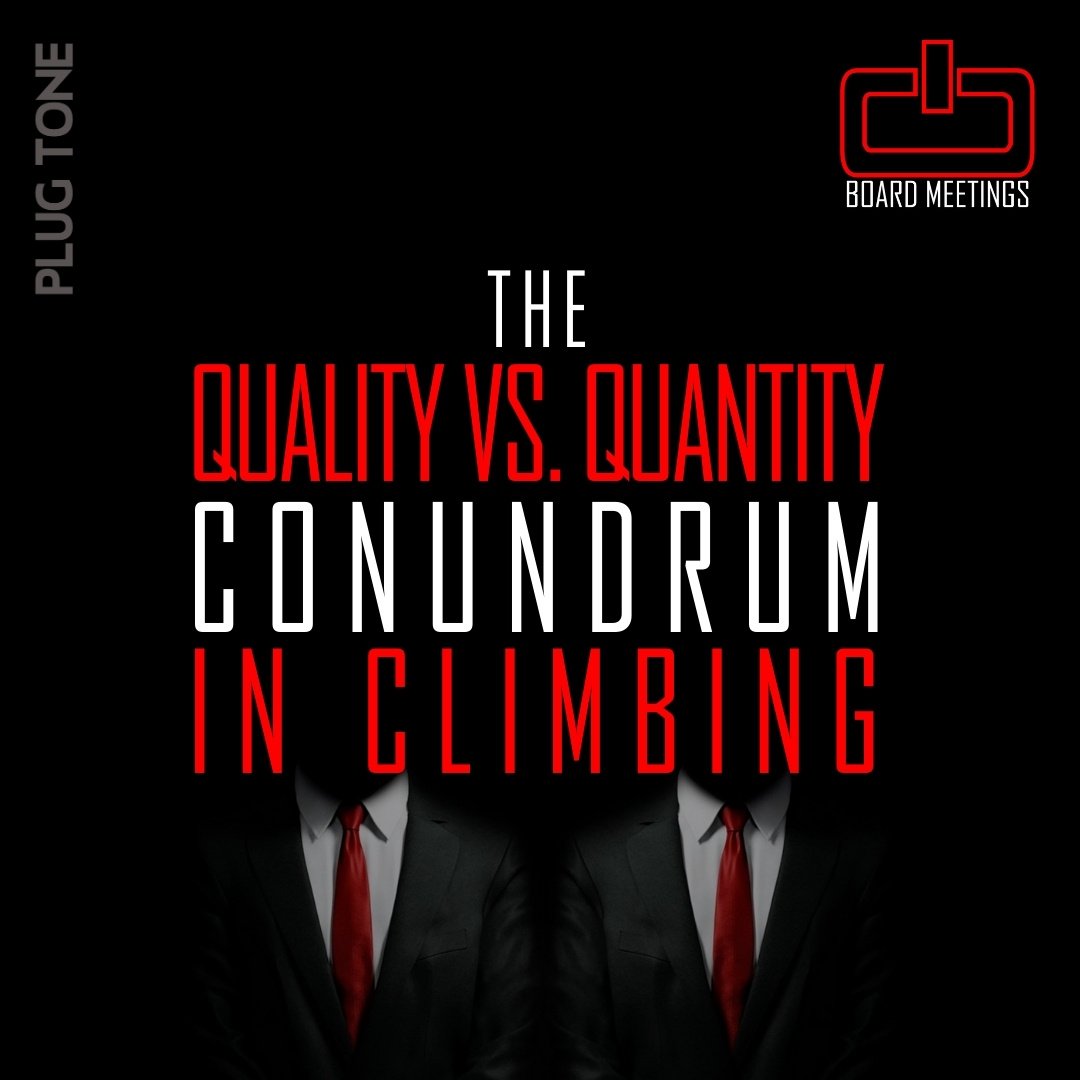
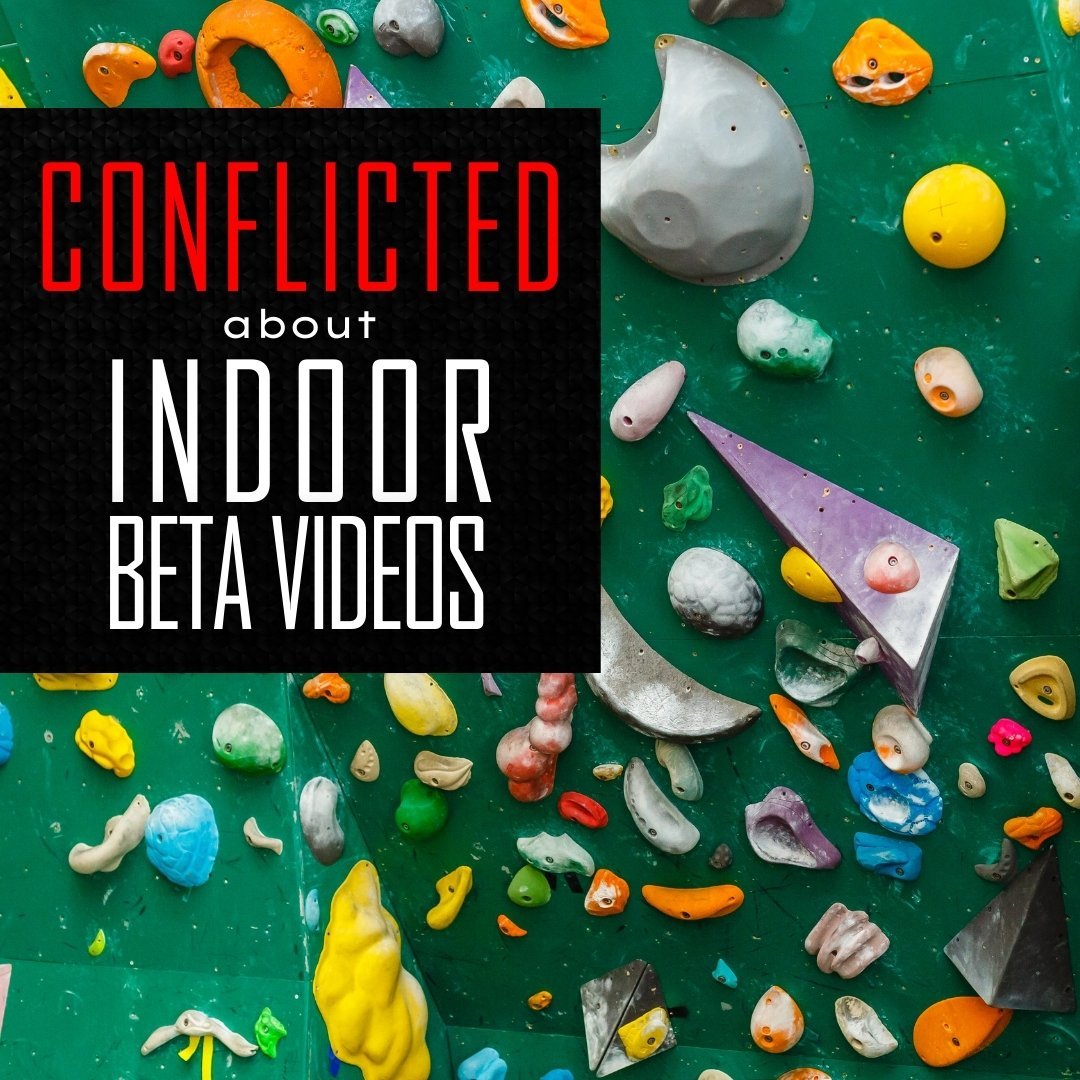
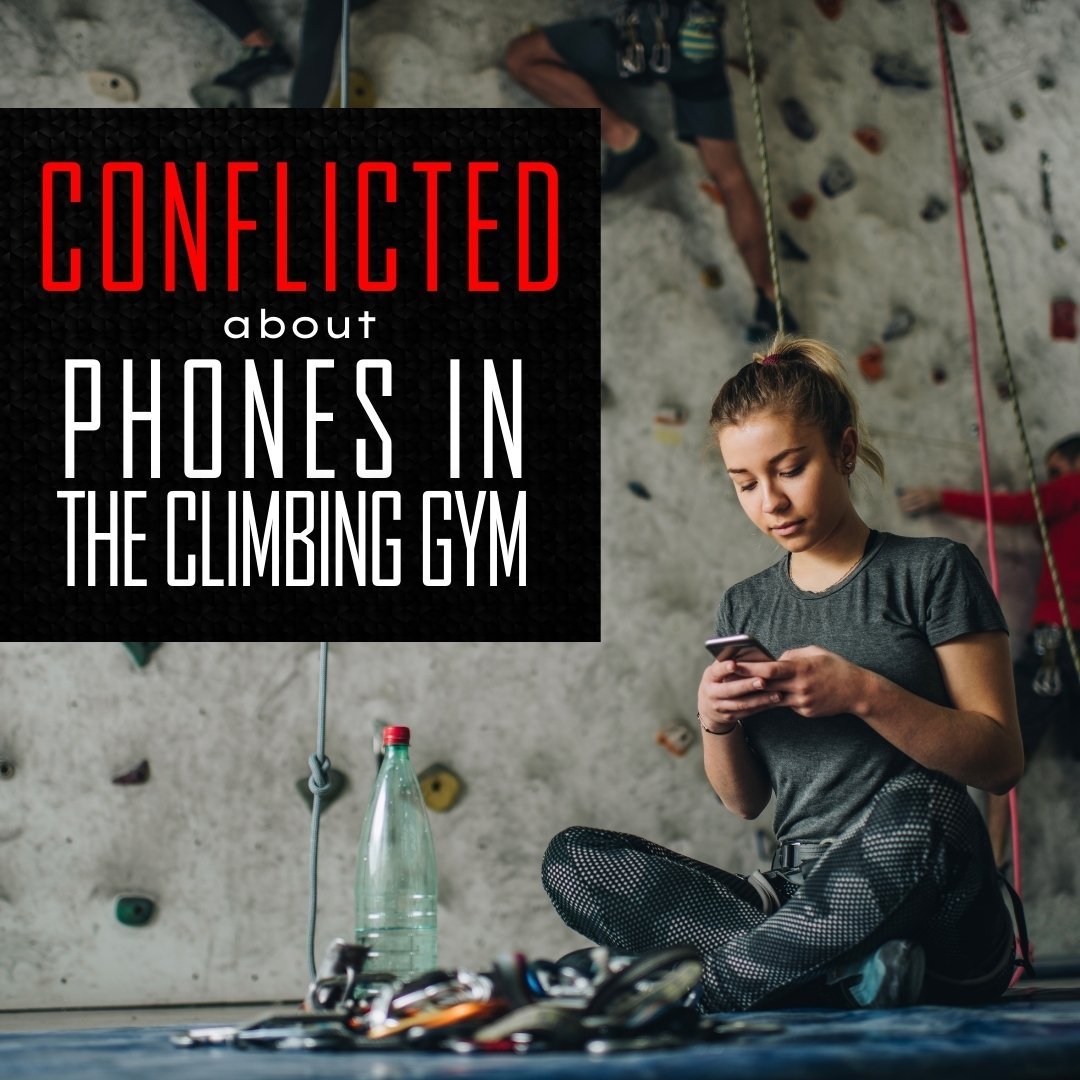
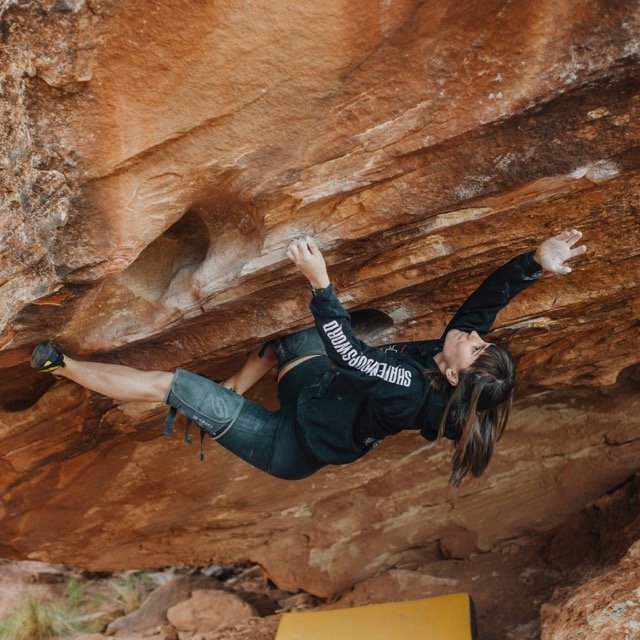

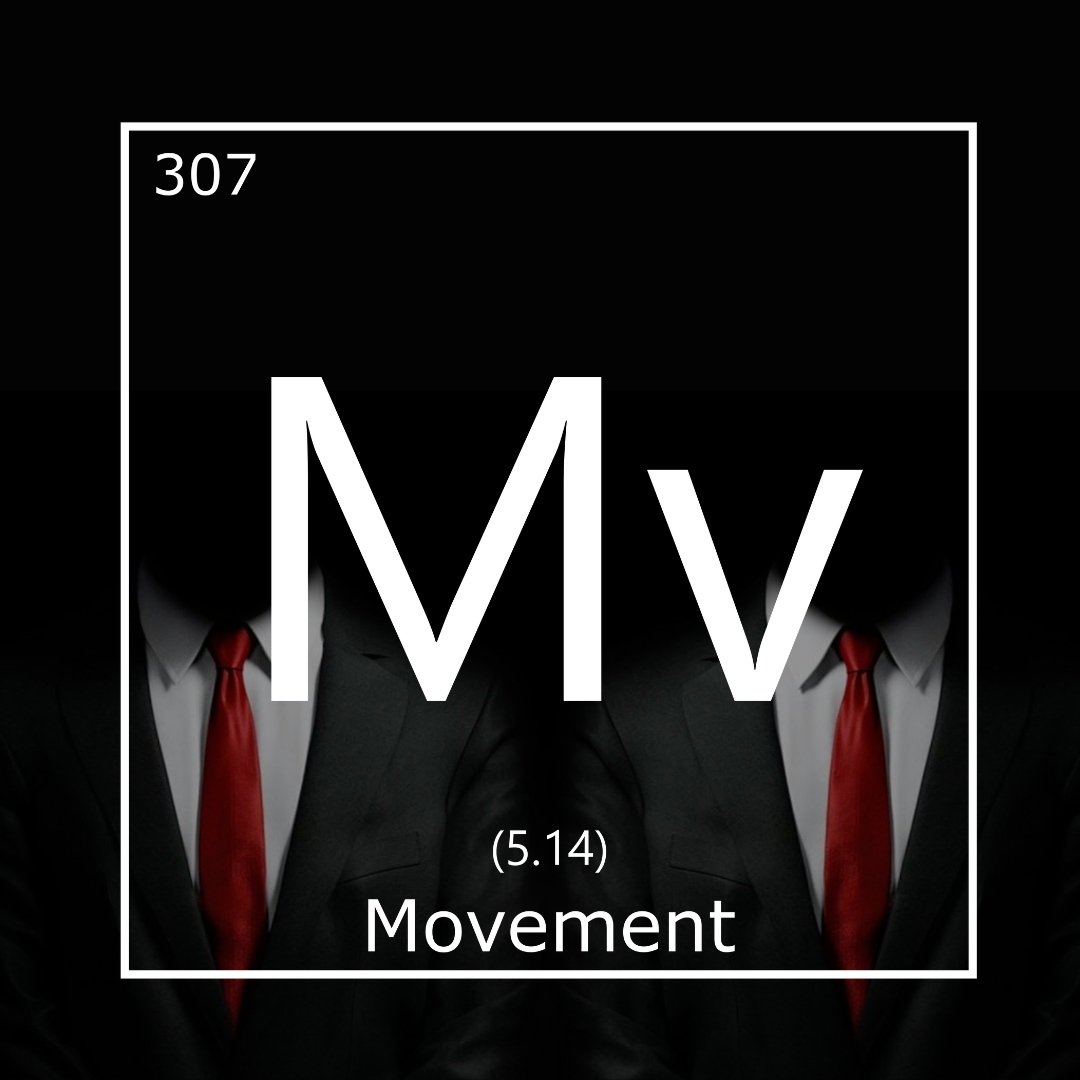
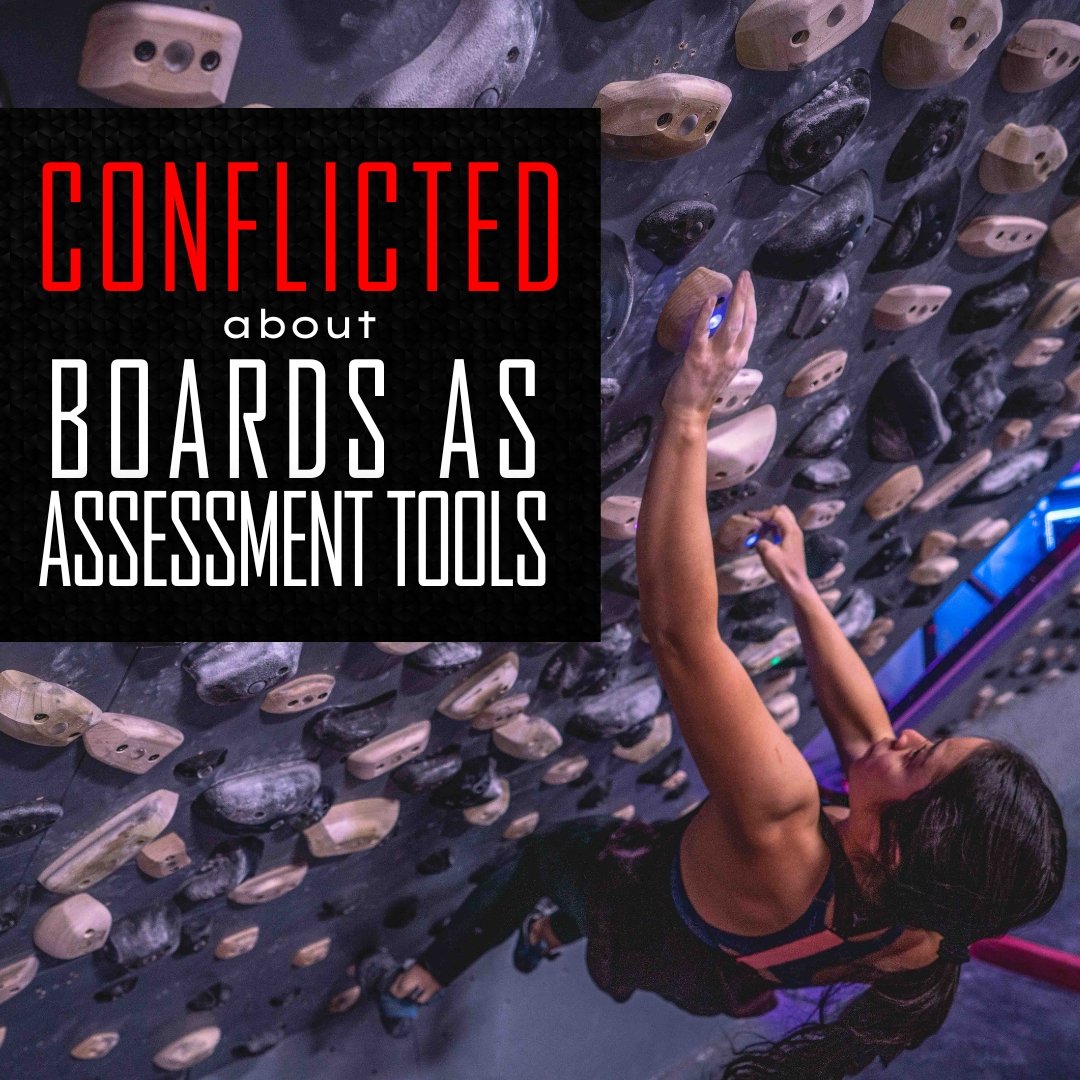
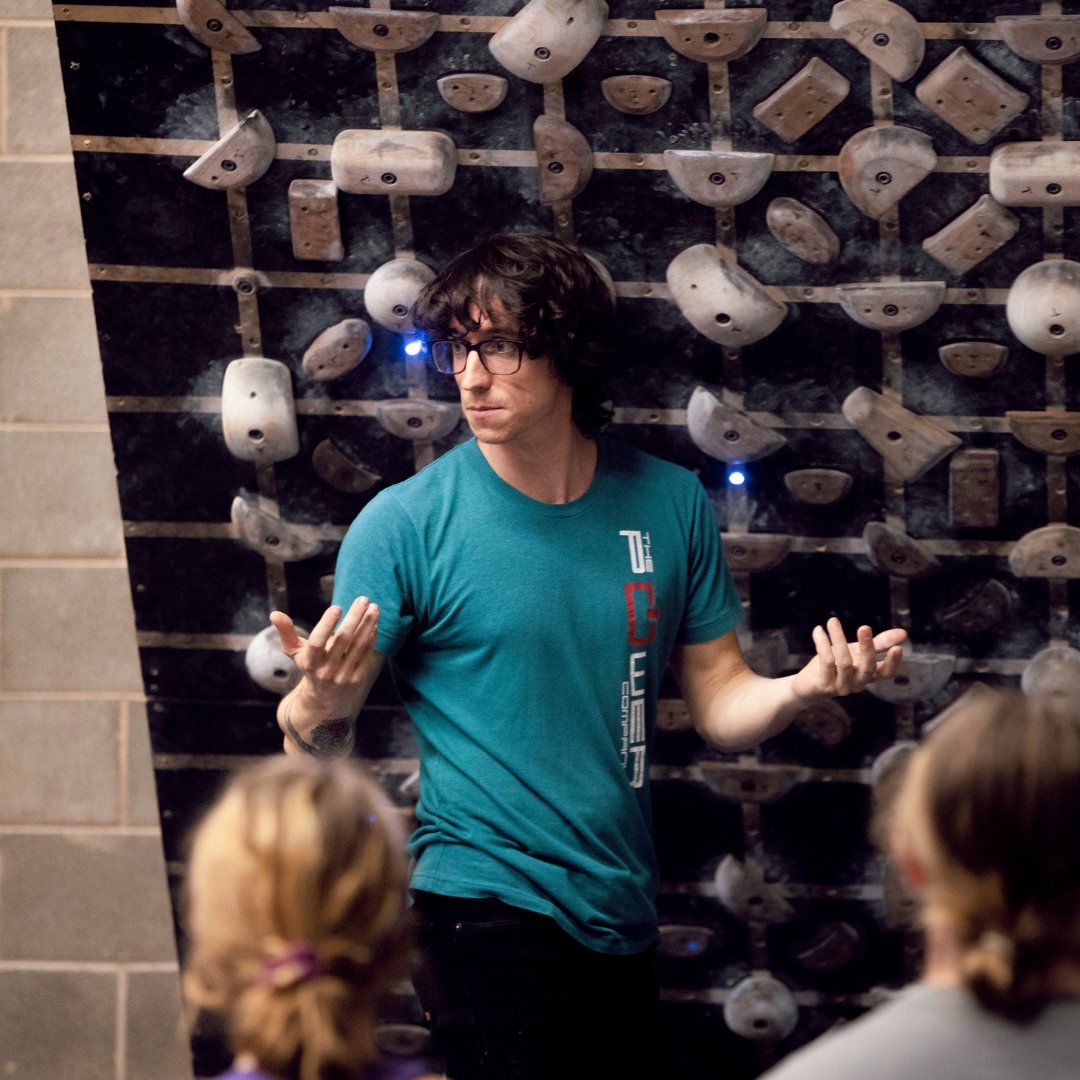
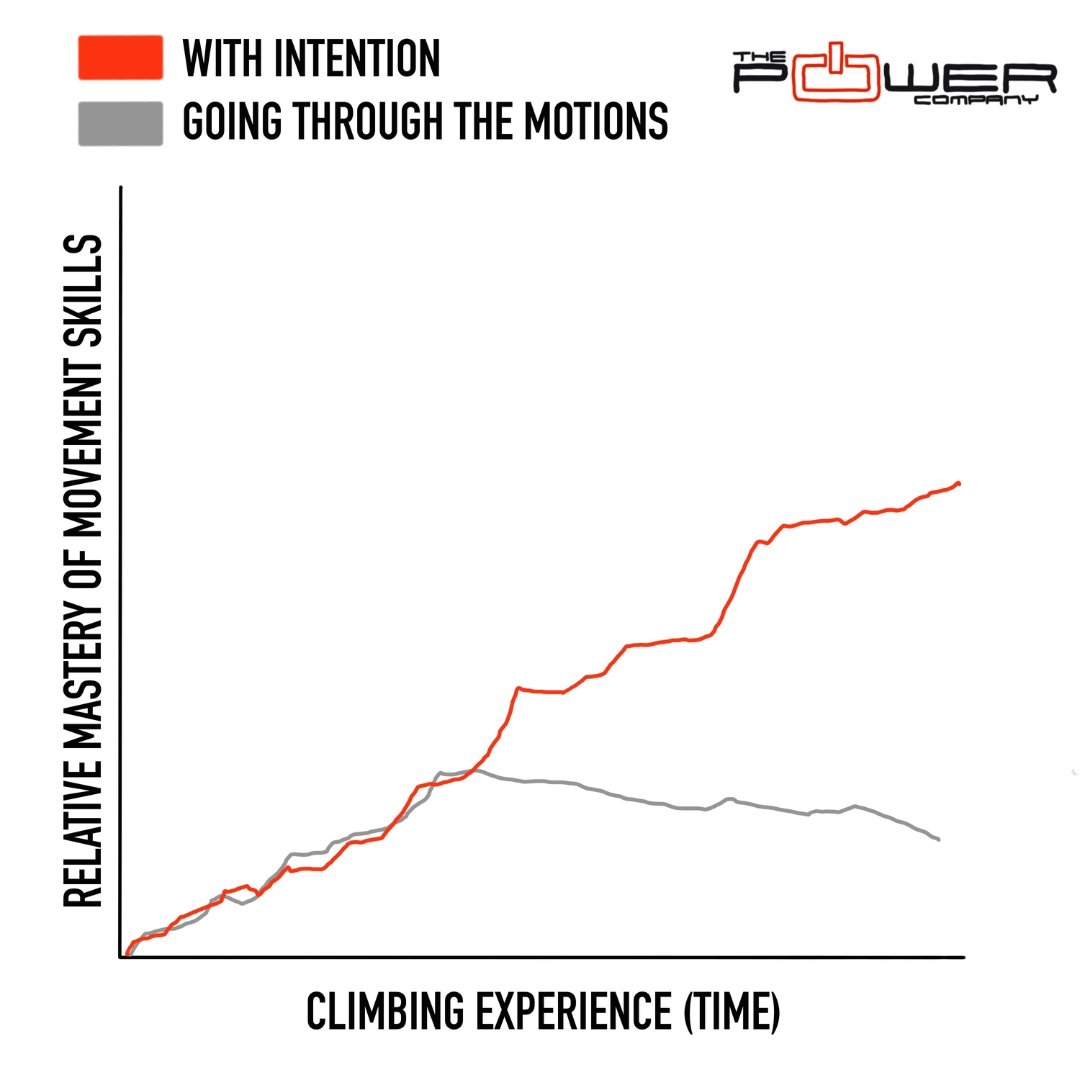




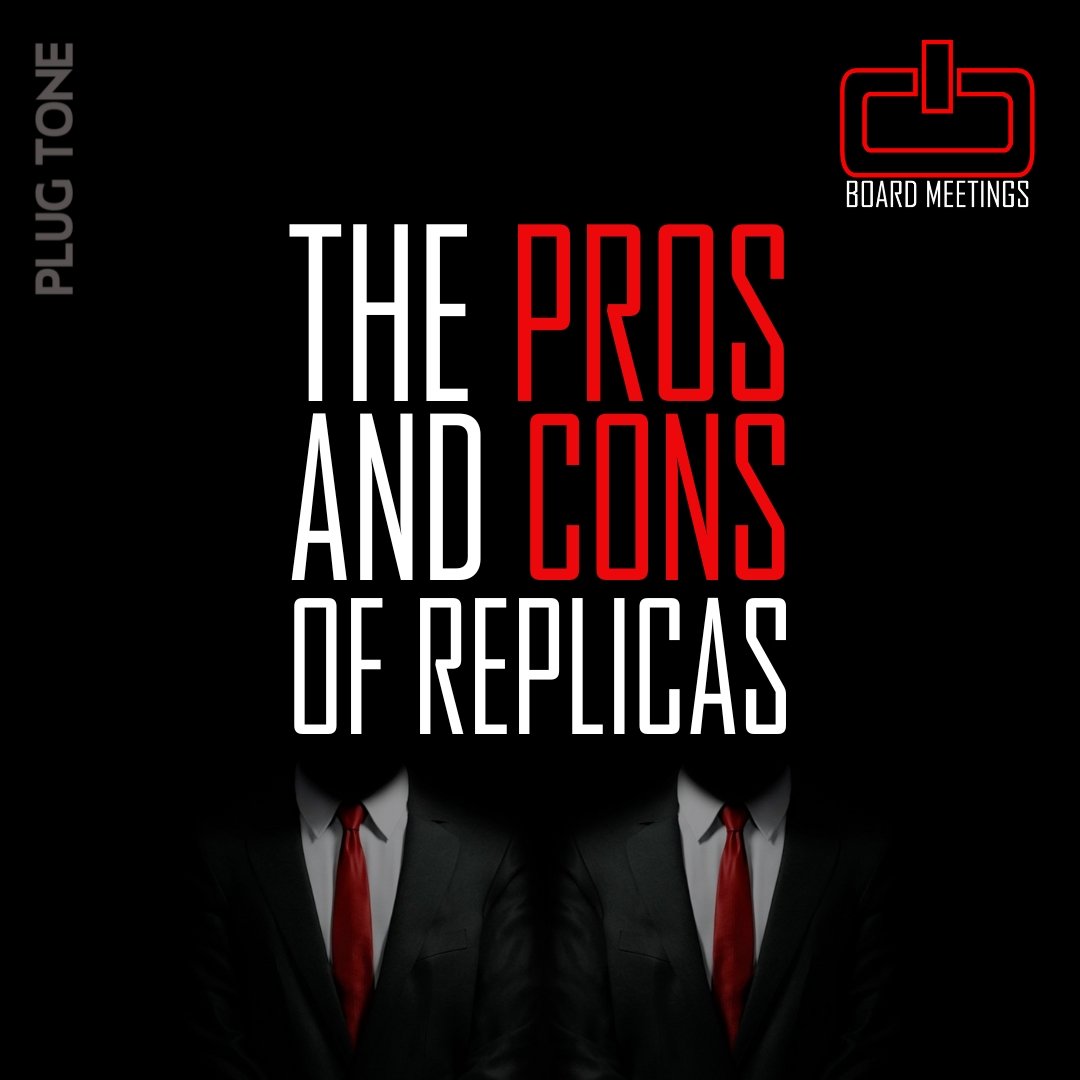


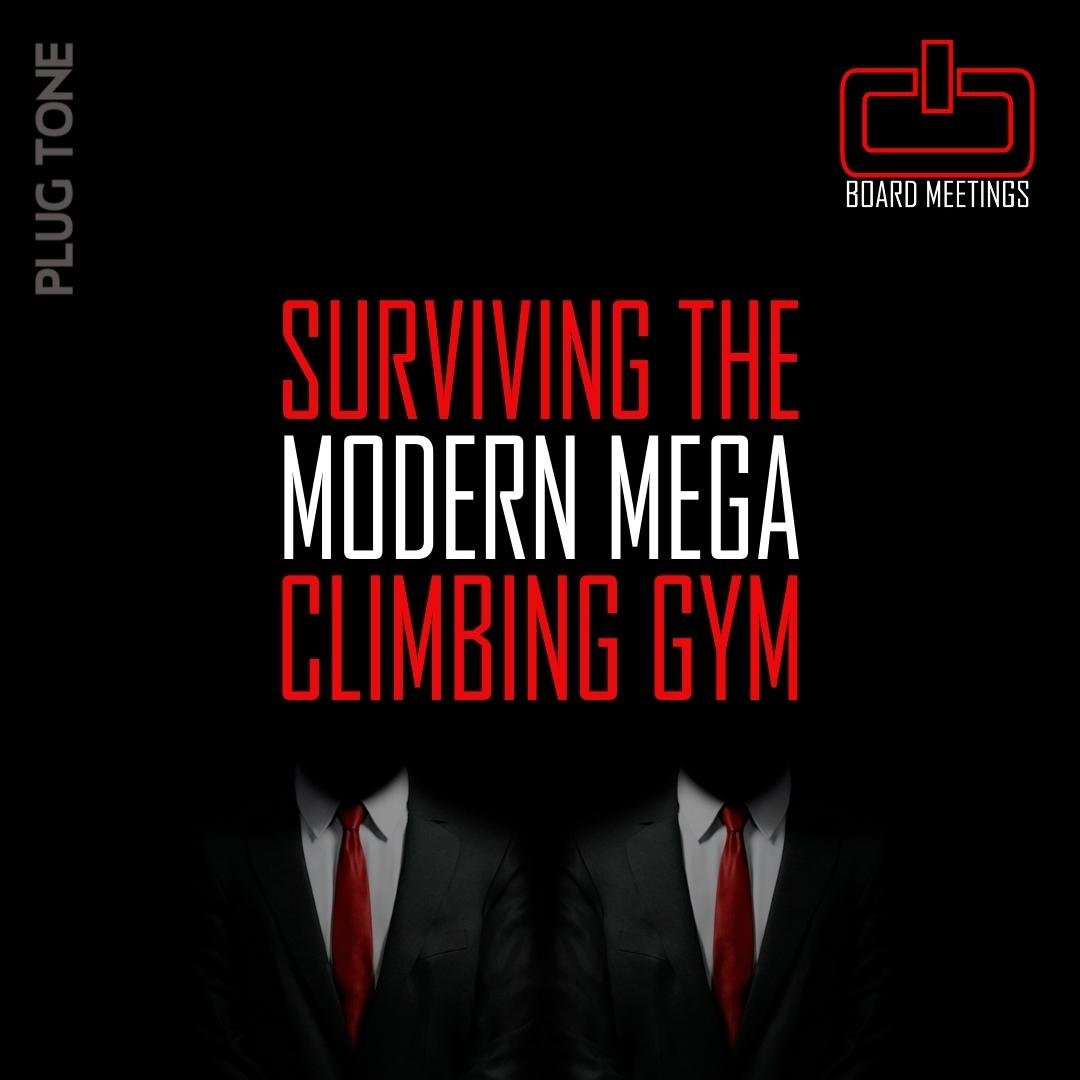


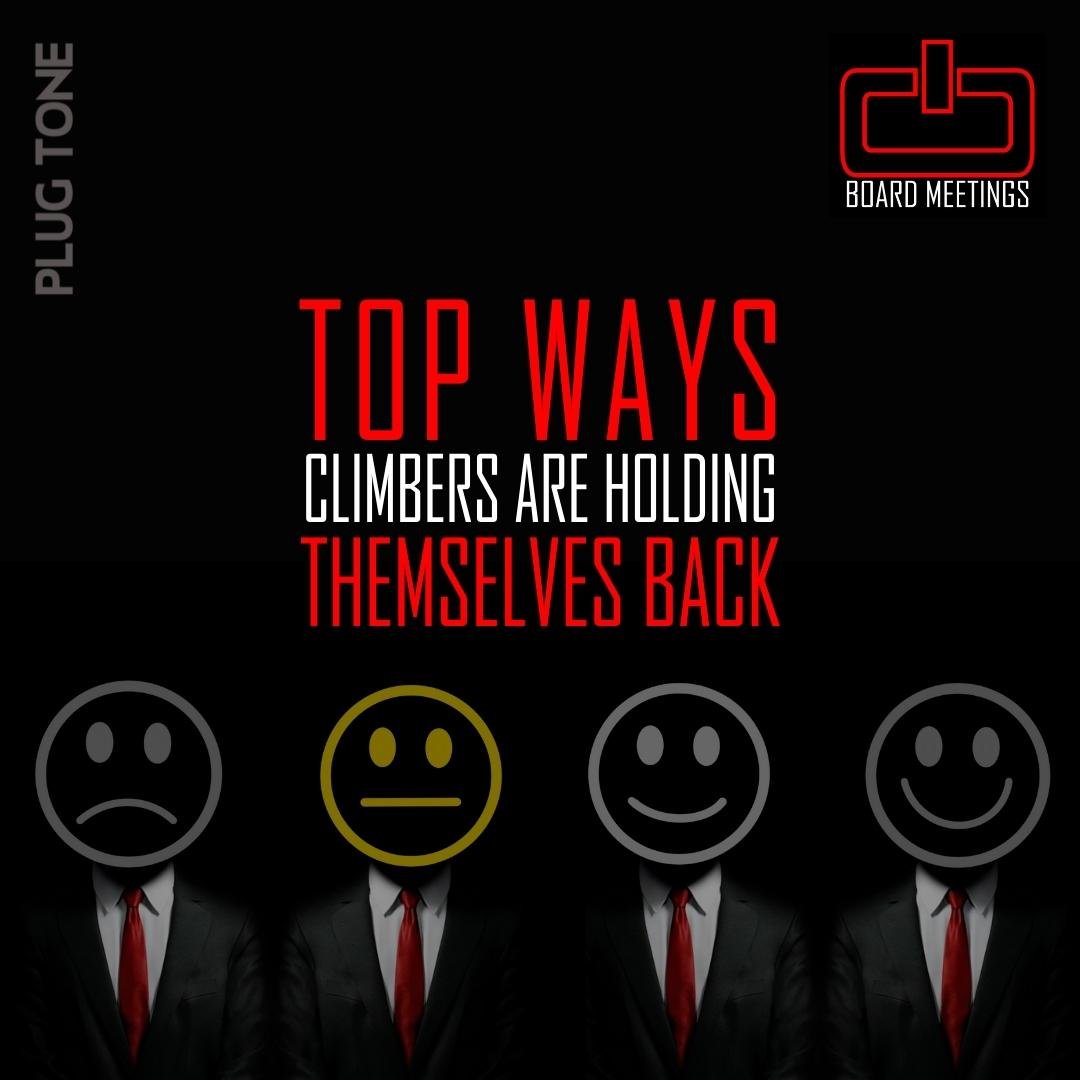



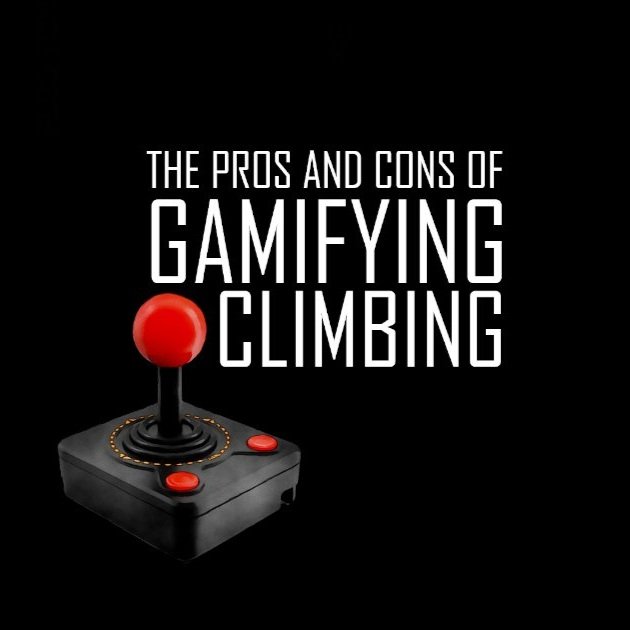
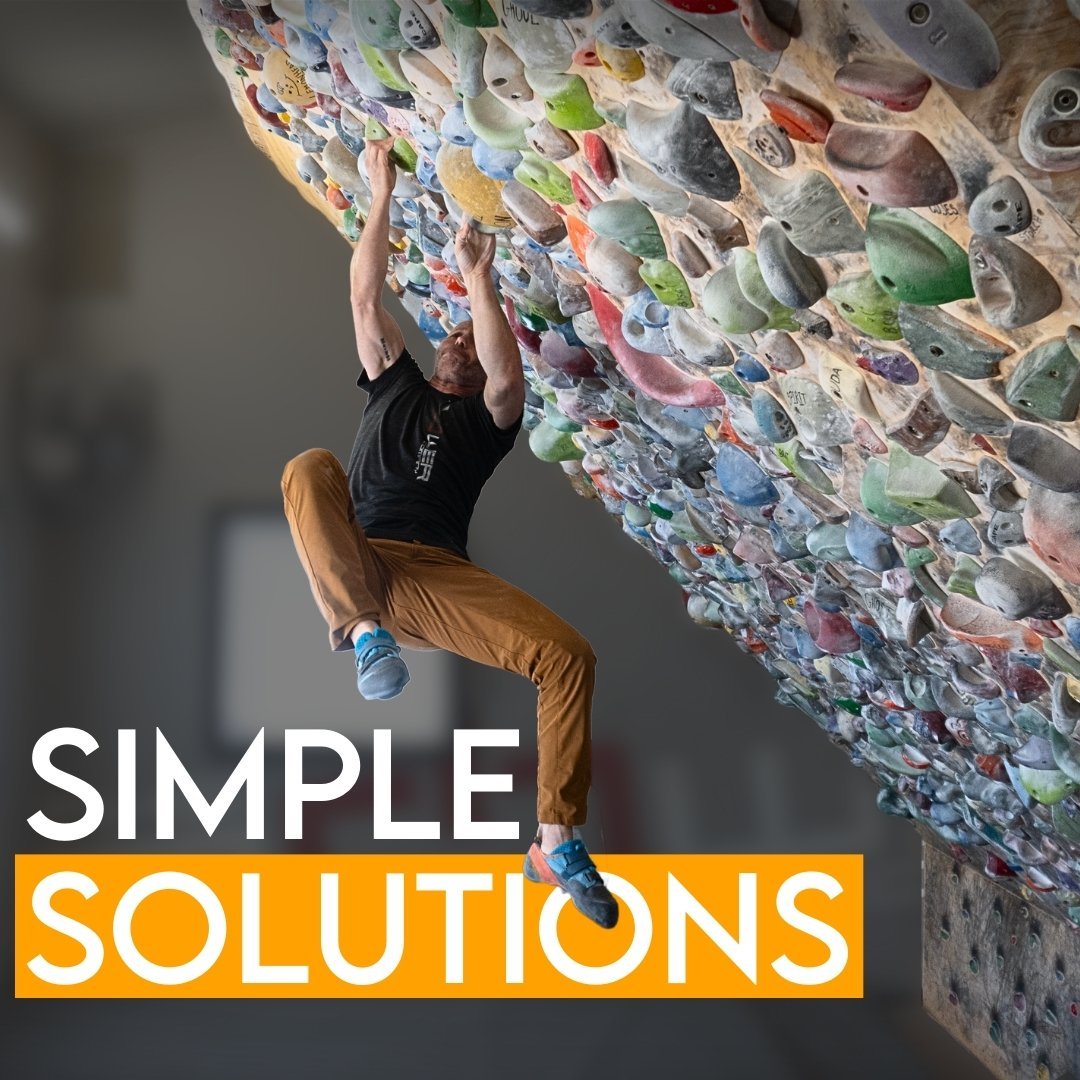


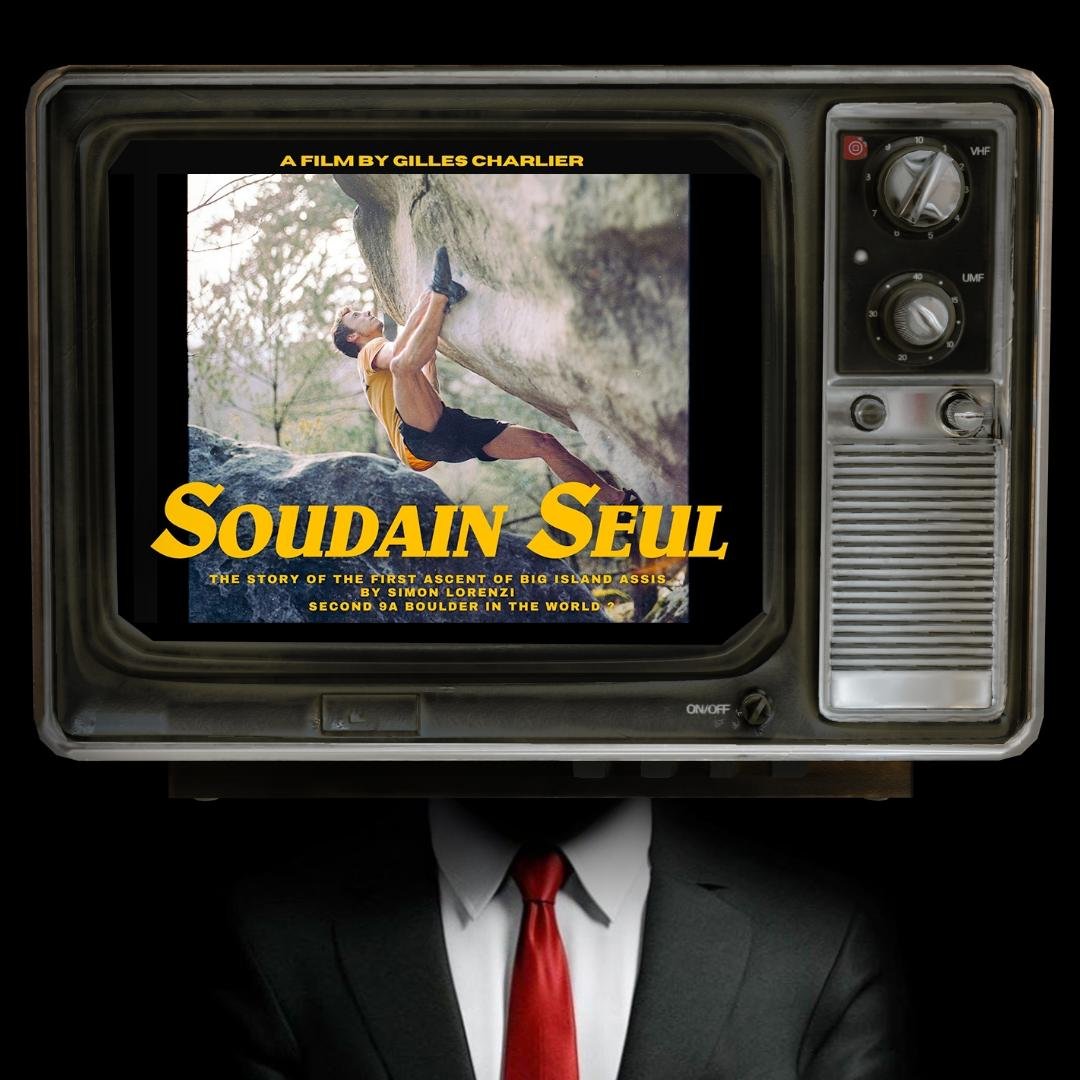

If a lot of your climbing is done outdoors, it might make sense to use some of that time for training rather than performance.